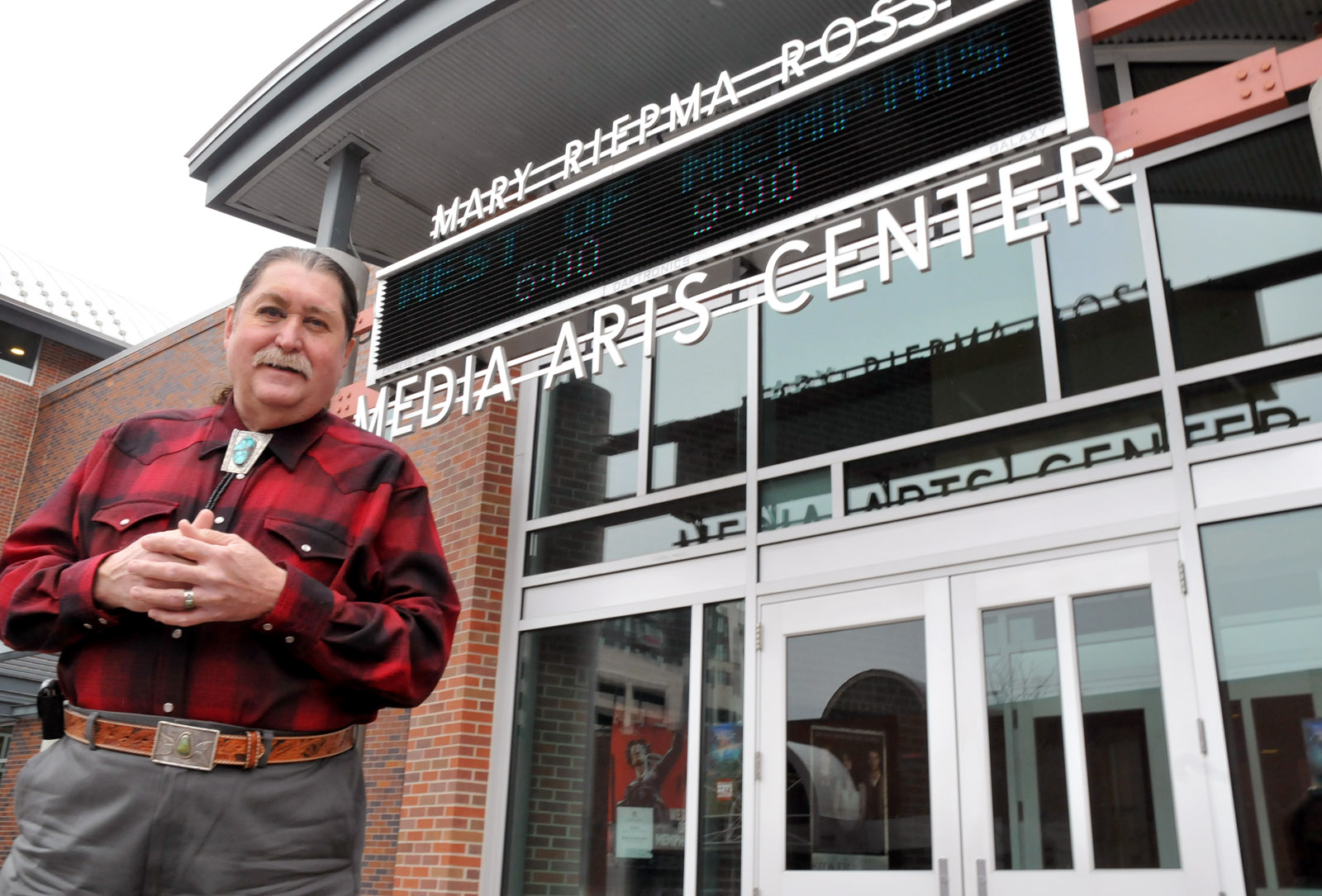
Danny Lee Ladely never intended to spend his career at the movies.
In 1973, Ladely accepted an invitation from Norman Geske to lead a full-time film program at the Sheldon Museum of Art. Ladely — whose passion for film started in his hometown of Gordon, Neb., and grew as a UNL student — saw the gig as a four- or five-year detour until he would get back on track toward a photojournalism career.
"It turned out to be such an interesting and fun job that I'm still here 40 years later," said Ladely, director of the Mary Riepma Ross Media Arts Center. "It never paid very much, but it certainly has been a labor of love."
A celebration of Ladely's 40th anniversary showing independent films at UNL is March 30. The closed event, organized by the Friends of the Ross, will include a screening of Ladely's favorite film, Jean Coucteau's 1946 masterpiece "Beauty and the Beast."
"It really is a magical film," Ladely said. "To me, it's the epitome of how magical cinema can be."
That love for the movies started when Ladely was growing up in Gordon and rushing to 25-cent, Saturday afternoon matinees at the Pace Theater. He remembers being so excited to see "The Alamo" that he darted across Gordon's main drag without looking for cars. Even when the danger was realized, the draw of seeing the film kept Ladely's feet moving forward. He did fire off a quick prayer, though.
"I remember thinking, 'God, please don't let me get run over,'" Ladely said.
While he loved the movies, Ladely started making plans to become a photojournalist. As a pre-teen, he set up his own darkroom and developed an ability to shoot photos.
The dance between dark rooms continued as Ladely worked at the Pace Theater and the Gordon drive-in. Ladely did every task needed in a theater, from mowing grass at the Chief Drive-In and selling tickets to changing the marquee and running the projectors.
He came to the University of Nebraska in 1965, having spent his first year of college at Chadron State University. Ladely studied photojournalism in the School of Journalism — then a part of the College of Arts and Sciences — and shot photos for the Daily Nebraskan.
Ladely also became involved with the Union Program Council (now the University Program Council), helping with a foreign film society and creating an underground film series.
"I also took the first film studies class ever taught here at UNL," said Ladely. "It was taught by June Levine, an English professor and founder of the university's film studies program."
Levine was one of the people who recommended Geske hire Ladely to lead the Sheldon's film program.
During his tenure, Ladely has worked to keep the program ahead of the curve in terms of playing top independent films and showcasing them through the best technology available. He also developed a relationship with Mary Riepma Ross, a former University of Nebraska student and patron of the arts.
Former chancellor Woody Varner introduced Ross to Geske. Ross, who lived in New York City, was a patron of the arts and pledged her support to the film program.
"After Norman (Geske) retired, I figured that if this film program was going to continue and thrive in the future, it needed to progress into its own facility," Ladely said. "So, I wrote Mary a lengthy letter explaining why we needed to have our own facility. I even suggested the ideal location would be 13th and R streets. I never imagined that would come true."
Ross loved the idea. During talks with the University of Nebraska Foundation, Ross became close friends with the foundation's Lucy Buntain Comine (both being former Delta Gammas) and ended up pledging $3.5 million for the film-building project.
The commitment led to the construction of the Mary Riepma Ross Media Arts Center on the corner of 13th and R streets.
In planning the project, Ladely insisted that the theater incorporate a digital projector. While still relatively new at the time, Ladely rightfully believed digital to be the wave of the future for film.
In 2003, the Ross Media Arts Center became the first university theater in the world to install a digital projection system. Today, the Ross can show movies in any format, from 8mm film to digital 3D.
The theater is also the home to the Johnny Carson School of Theatre and Film's film and new media program. The building includes two theaters, a film vault, a library/meeting room and concessions stand.
The Ross has four full-time employees, including Ladely; Kassi Hill, business manager; Meghan Stratman, advertising associate; and Lynn Rogers, projectionist.
While the recent focus has been on Ladely's past, he is firmly looking toward the future. His next goal is to work with the NU Foundation to create a sizeable endowment that will provide the Ross with stable year-to-year income.
"Obviously, I'm 65 and my days are numbered," Ladely said. "I'm not planning on going anywhere because I love this job and working in this amazing building. But, I do want to stick around long enough to make sure that the Ross lasts well beyond my years."
— Troy Fedderson, University Communications